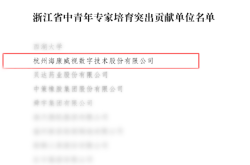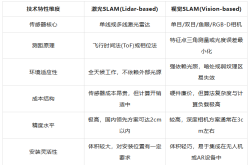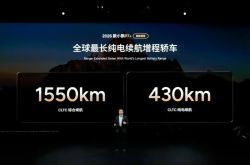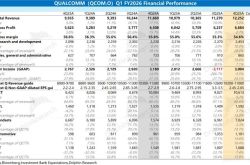"Auto Circle UNIQLO" Surpasses Li Auto and BYD
![]() 12/14 2024
12/14 2024
![]() 691
691
Written by Sansheng
As we near the end of the year, reflecting on the 2024 new energy vehicle (NEV) sector reveals a landscape of intense competition. Amidst this hustle, some brands have lagged behind, while others have caught up or even emerged as unexpected contenders. One such example is NIO Auto, which we delve into today.
According to November sales figures, NIO Auto achieved a monthly sales milestone, exceeding 40,000 units for the first time with 40,169 vehicles sold, marking a 117% year-on-year increase. From January to November, NIO Auto delivered a cumulative total of 251,207 units, surpassing its annual target ahead of schedule with a 100% year-on-year growth.
NIO Auto's stellar performance may have exceeded many people's expectations. During its resurgence, it has earned several nicknames within the industry, including "Little Li Auto" and "Little BYD."
What sets Li Auto apart is its exceptional product positioning. BYD, on the other hand, excels in cost-effectiveness. NIO Auto has successfully amalgamated the strengths of both, though it is somewhat ambivalent about these labels.
At the recent Guangzhou Auto Show, Cao Li, Senior Vice President of NIO Auto, stated that while the company does not reject the "Little Li Auto" label, it does not wish to be pigeonholed. NIO Auto remains NIO Auto, acknowledging the benefits of these labels while aspiring to maintain brand independence.
But can NIO Auto balance both aspirations?
01 Emulating the Ideal: Learning from Li Auto
NIO Auto has been open about emulating Li Auto, and its leaders are unashamed to admit it.
In March 2024, at an NIO Auto event, Zhu Jiangming, the founder, candidly stated, "Every detail of the NIO C10 is modeled after the Li Auto L7. In terms of understanding user needs, product handling comfort, and in-car display methods, Li Auto is worthy of our learning."
Currently, NIO Auto's C-series comprises three SUVs: the C10 (priced between RMB 128,800 and 168,800), the C11 (priced between RMB 148,800 and 205,800), and the C16 (priced between RMB 155,800 and 185,800), all priced above RMB 100,000.
When the NIO C10 debuted at the 2023 Guangzhou Auto Show, its design closely resembled the Li Auto L series and was also targeted at family users. NIO Auto's official positioning statement was even more direct, describing it as "an ideal home for young people."
It seems as though NIO Auto is directly telling consumers that it offers a budget-friendly alternative to Li Auto. From exterior design to interior detailing, handling, and in-car systems, NIO Auto's models have indeed taken inspiration from Li Auto in every aspect of their offerings.
In the fiercely competitive NEV sector, Li Auto has taken the lead with its exceptional product mindset, making it a natural target for imitation by many automakers. However, what sets NIO Auto apart as the most successful "student"?
According to Jie Dian Cai Jing, NIO Auto's success in emulating Li Auto lies in its humble attitude and thorough learning approach. It does not hesitate to learn from every aspect, from the body to the soul. For example, the exterior and interior design of the NIO C10, with its fridge, TV, and large sofas; the spacious interior and third row of the NIO C16; and the NIO B10, which debuted at the Paris Motor Show and bears a striking resemblance to the Li Auto L6.
This close emulation strategy allows target users to easily understand NIO Auto's products during the initial market launch phase. Importantly, NIO Auto's imitation extends beyond product definition and market positioning; it also introduces unique offerings.
Some joke that NIO Auto is "crossing the river by feeling the stones" of Li Auto. However, NIO Auto's sights are not limited to Li Auto; it is also keeping an eye on BYD.
02 Focusing on Cost-Effectiveness: Aligning with BYD
What NIO Auto has learned from BYD is cost-effectiveness. However, unlike its openness about learning from Li Auto, NIO Auto has shied away from the "Little BYD" label. Instead, it uses another brand to illustrate its positioning: UNIQLO.
At the launch event for the NIO C16, Zhu Jiangming said, "I hope NIO Auto's position in the automotive industry will be like UNIQLO in the apparel industry: it may be slightly more expensive than average products, but the fabric, texture, and design will also be better."
UNIQLO's brand essence is well-known. The brand has become a household name by attracting customers through its products, design, and pricing, with a strong focus on cost-effectiveness. NIO Auto's emphasis on following the "UNIQLO route" implies that its products are "good without being expensive."
So, why does NIO Auto also have the nickname "Little BYD"? It's because everyone recognizes BYD as a cost-effectiveness champion. To stand out in the ongoing "price war," considering BYD is essential.
The core reason for BYD's success in cost-effectiveness lies in its "full-domain in-house research and development" capability and its willingness to sacrifice some profits to gain market share.
Jie Dian Cai Jing observes that while NIO Auto appears to be learning from BYD's cost-effective strategy, behind this is a robust support system of in-house research and development and manufacturing capabilities. Full-domain in-house research and development not only enables faster technological upgrades but also gives NIO Auto stronger bargaining power with suppliers.
This capability allows NIO Auto to carve out its own path in the "RMB 100,000 to 200,000" price range, which is also BYD's territory.
It is worth noting, however, that the cost of NIO Auto's achievements is financial loss. In the first half of this year, NIO Auto lost RMB 25,500 per vehicle sold. Although losses are decreasing, profitability remains uncertain.
From the distribution of product prices, it is evident that NIO Auto focuses on the mid-to-low end of the market. In addition to BYD, other competitors are also closely monitoring this segment, exerting significant pressure on NIO Auto.
03 Embracing Uniqueness: Becoming NIO Auto
Fundamentally, all domestic NEV manufacturers have one common goal: to maintain sales growth. Amidst fierce competition, they strive to be among the last laughers, and NIO Auto is no exception.
Some may think that selling one car at a loss means losing more money the more cars are sold. However, this is not the case. The NEV industry requires significant upfront investments and economies of scale. Only by increasing sales can costs be reduced and profits improved. This is the core reason why major NEV brands are desperate to boost sales.
For NIO Auto, now is not the time to relax. On one hand, NIO Auto's current model positioning and pricing overlap significantly, creating internal competition. For example, both the NIO C10 and the new C11 are mid-sized SUVs with similar pricing. The former is officially priced between RMB 128,800 and 168,800, while the latter is priced between RMB 148,800 and 205,800. The later-launched C16 is seen as an upgraded replacement for the C11, with overlapping price points.
On the other hand, many automakers are following Li Auto's path, posing more severe external challenges. For instance, the Nezha L has a similar positioning and pricing to the NIO C10, offering both extended-range and pure electric versions. The Deep Blue S7 and its upgraded version, the Deep Blue S07, directly compete with NIO Auto's main models in both positioning and pricing.
It is crucial to note that while NIO Auto has learned from both Li Auto and BYD, it does not compete head-on with Li Auto in terms of product pricing but does face direct competition with BYD and many traditional automakers. Gaining an advantage under a "champion" like BYD is not easy.
Therefore, like many NEV manufacturers, NIO Auto is looking to overseas markets for sales growth.
In November 2023, Stellantis, the parent company of Maserati, formed a global strategic partnership with NIO Auto. Leveraging the group's sales channel advantages, NIO Auto has a competitive edge. However, as the overseas business is still nascent, it remains uncertain whether it can drive future sales growth.
In summary, the transition to NEVs is well underway. By closely emulating Li Auto and BYD, NIO Auto has achieved rapid sales growth. However, the market competition and economic landscape are rapidly evolving, making it challenging to sustain long-term growth through imitation alone. Ultimately, NIO Auto must learn to "be itself." This is also the reason why NIO Auto seeks to shed the labels of "Little Li Auto" and "Little BYD," but whether it will succeed remains to be seen over time.






